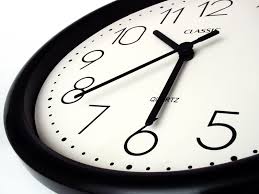Get ready to spring forward, Canada! On Sunday, March 13 at 2 a.m., most of us will lose an hour of sleep thanks to Daylight Saving Time. It brings to end Standard Time, which gave most Canadians an extra hour of darkness on Sunday, Nov. 1, 2015.

Of course, the time change won’t affect all Canadians. Saskatchewan natives, save for Lloydminster, observes Central Standard Time (CST) year-round, so they never have to update their clocks. There are also towns in many provinces who don’t follow the tradition of springing forward.
READ MORE: Parents, take heart: 4 tips to help kids adjust to Daylight Saving
According to History, Germany was the first country to adopt Daylight Saving Time shortly after World War I. The country made the change in an attempt to conserve energy and electricity. The United Kingdom quickly followed their lead.
It’s interesting to note that the concept of springing forward was invented decades before it was actually adopted. Englishman William Willette actually led the campaign to alter our hours.

Get weekly health news
“While on an early-morning horseback ride around the desolate outskirts of London in 1905, Willett had an epiphany that the United Kingdom should move its clocks forward by 80 minutes between April and October so that more people could enjoy the plentiful sunlight. The Englishman published the 1907 brochure The Waste of Daylight and spent much of his personal fortune evangelizing with missionary zeal for the adoption of ‘summer time,'” says History.
READ MORE: Daylight Saving Time leads to ‘massive productivity losses,’ study says
Whether the benefits of this massive time change are beneficial is still a matter of debate. Researchers at Penn State, Virginia Tech and Singapore University found there are massive productivity losses due to the hourly shift. Sleep experts also worry about what Daylight Saving Time does to people’s health and sleep schedules.
“For most people, they can tolerate the effects of this one day and bounce back fairly quickly, so nothing needs to change. However, to mitigate the effects, you can take it in chunks rather than one hour if you would prefer,” says Colleen Carney, a Ryerson University professor, author and head of a Toronto-based sleep lab. “You can start by going to bed 15 minutes earlier tonight and getting up 15 minutes earlier tomorrow, In four days you will already have adjusted.”








Comments